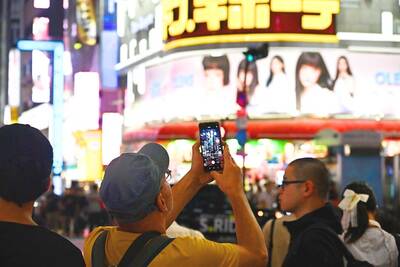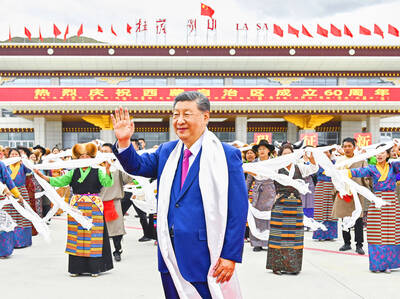US soldiers traumatized by fighting in Iraq and Afghanistan are to be offered the drug ecstasy to help free them of flashbacks and recurring nightmares.
The US food and drug administration has given the go-ahead for the soldiers to be included in an experiment to see if MDMA, the active ingredient in ecstasy, can treat post-traumatic stress disorder.
Scientists behind the trial in South Carolina think the feelings of emotional closeness reported by those taking the drug could help the soldiers talk about their experiences to therapists.
Several victims of rape and sexual abuse with post-traumatic stress disorder, for whom existing treatments are ineffective, have been given MDMA since the research began last year.
Michael Mithoefer, the psychiatrist leading the trial, said: "It's looking very promising. It's too early to draw any conclusions but in these treatment-resistant people so far the results are encouraging."
"People are able to connect more deeply on an emotional level with the fact they are safe now."
He is about to advertise for war veterans who fought in the last five years to join the study.
According to the US national center for post-traumatic stress disorder, up to 30 percent of combat veterans suffer from the condition at some point in their lives.
Known as shell shock during the first world war and combat fatigue in the second, the condition is characterized by intrusive memories, panic attacks and the avoidance of situations which might force sufferers to relive their wartime experiences.
Mithoefer said the MDMA helped people discuss traumatic situations without triggering anxiety.
"It appears to act as a catalyst to help people move through whatever's been blocking their success in therapy."
The existing drug-assisted therapy sessions last up to eight hours, during music is played.
The patients swallow a capsule containing a placebo or 125mg of MDMA -- about the same or a little more than a typical ecstasy tablet.
Psychologists assess the patients before and after the trial to judge whether the drug has helped.
The study has provoked controversy, because significant doubts remain about the long-term risks of ecstasy.
Animal studies suggest that it lowers levels of the brain chemical serotonin, and some politicians and anti-drug campaigners have argued that research into possible medical benefits of illegal drugs presents a falsely reassuring message.
The South Carolina study marks a resurgence of interest in the use of controlled psychedelic and hallucinogenic drugs.
Several studies in the US are planned or are under way to investigate whether MDMA, LSD and psilocybin, the active ingredient in magic mushrooms, can treat conditions ranging from obsessive compulsive disorder to anxiety in terminal cancer patients.

Ten cheetah cubs held in captivity since birth and destined for international wildlife trade markets have been rescued in Somaliland, a breakaway region of Somalia. They were all in stable condition despite all of them having been undernourished and limping due to being tied in captivity for months, said Laurie Marker, founder of the Cheetah Conservation Fund, which is caring for the cubs. One eight-month-old cub was unable to walk after been tied up for six months, while a five-month-old was “very malnourished [a bag of bones], with sores all over her body and full of botfly maggots which are under the

BRUSHED OFF: An ambassador to Australia previously said that Beijing does not see a reason to apologize for its naval exercises and military maneuvers in international areas China set off alarm bells in New Zealand when it dispatched powerful warships on unprecedented missions in the South Pacific without explanation, military documents showed. Beijing has spent years expanding its reach in the southern Pacific Ocean, courting island nations with new hospitals, freshly paved roads and generous offers of climate aid. However, these diplomatic efforts have increasingly been accompanied by more overt displays of military power. Three Chinese warships sailed the Tasman Sea between Australia and New Zealand in February, the first time such a task group had been sighted in those waters. “We have never seen vessels with this capability

A Japanese city would urge all smartphone users to limit screen time to two hours a day outside work or school under a proposed ordinance that includes no penalties. The limit — which would be recommended for all residents in Toyoake City — would not be binding and there would be no penalties incurred for higher usage, the draft ordinance showed. The proposal aims “to prevent excessive use of devices causing physical and mental health issues... including sleep problems,” Mayor Masafumi Koki said yesterday. The draft urges elementary-school students to avoid smartphones after 9pm, and junior-high students and older are advised not

Chinese President Xi Jinping (習近平) attended a grand ceremony in Lhasa yesterday during a rare visit to Tibet, where he urged “ethnic unity and religious harmony” in a region where China is accused of human rights abuses. The vast high-altitude area on the country’s western edge, established as an autonomous region in 1965 — six years after the 14th Dalai Lama fled into exile — was once a hotbed for protest against Chinese Communist Party rule. Rights groups accuse Beijing’s leaders of suppressing Tibetan culture and imposing massive surveillance, although authorities claim their policies have fostered stability and rapid economic development in